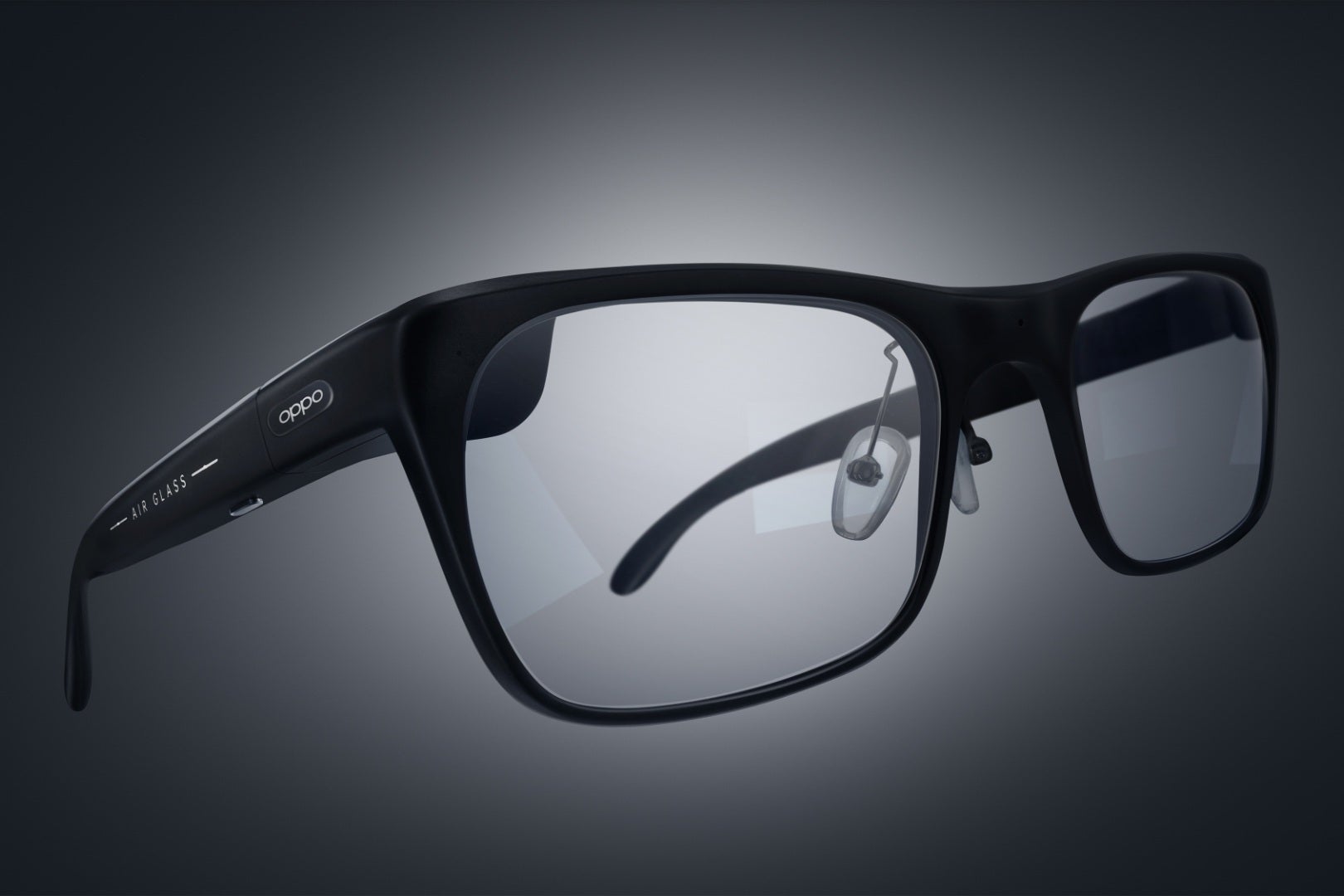OK, so what is it?
On the outside, it’s a fairly regular-sized set of glasses with transparent optics. However, each of these lenses is capable of showing you colored images, and Oppo calls this the world’s lightest binocular AR glasses. They weigh around 50 g (1.76 oz) and have been designed with comfort and all-day wear in mind.


The Oppo Air Glass 3 comes with speakers in the frames, meant for calls as well as app interaction. To improve privacy and quality of user experience, Oppo utilizes what it calls a “reverse sound field technology” — supposedly, people in your immediate vicinity shouldn’t be able to hear what’s coming from the Glass 3’s speakers, which is audio meant for your ears only. Despite this, Oppo claims that sound quality for the listener is rich and deep.
To function, the current prototype of Oppo Air Glass 3 needs to be paired to a modern Oppo phone with ColorOS 13 or above. Controlling the glasses is done via touch pads on the frames.
The Oppo Voice assistant and functions
The major new thing here is a brand-new voice assistant AI, working on Oppo’s own AndesGPT large language model. The AI is not on the glasses themselves — you need to be paired to the app on a smartphone to interact with it (also, it’s currently only available in China). AndesGPT is said to be effective at searching for information and stringing together queries for slightly more complex tasks, like making travel plans.


Clearly, Oppo plans to go through a few more prototypes before it launches something like this, or an evolution of this product. The Air Glass 2 prototype was showcased two years ago, and progress has been steady so far. Oppo has also recently launched an AI center, which — among other things — will be looking at ways to integrate AI with AR and XR in the future.
So, we don’t have any launch date or even window. For the time being, this is a proof of concept and a showing of Oppo’s engineering work behind the scenes.
#Oppo #Air #Glass #AIpowered #smart #glasses #GPT #assistant #voice #calls


